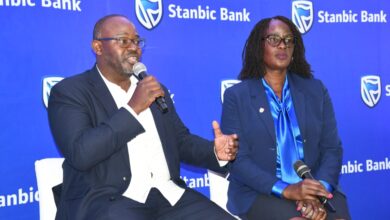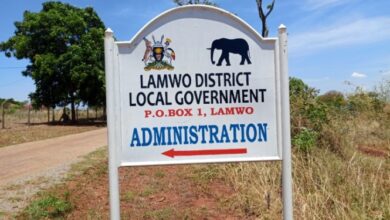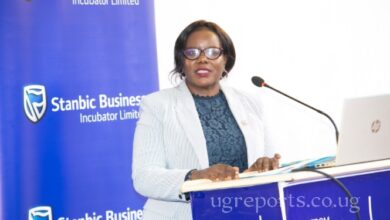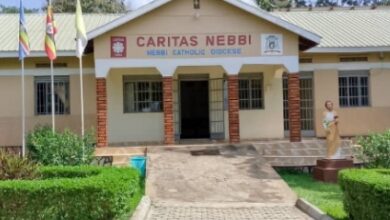Terego farmers ask government to scale up support for solar-powered irrigation
Despite the growing adoption of solar irrigation, farmers face challenges such as high initial costs, limited access to financing, and inadequate technical support.
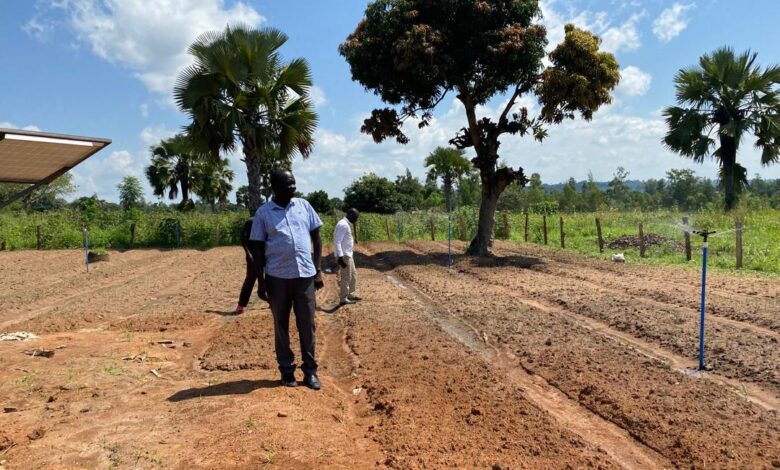
Terego: The Olea Fish Farmers Group in Katrini Sub County, Terego district, is calling on the government to provide solar equipment for irrigation, aimed at enhancing agricultural production and empowering local farmers, George Buatre writes.
Established in 2022, the group utilizes solar-powered irrigation for horticulture and fish farming. Group leaders propose offering this support free of charge to capable members, regardless of their population size.
Stephen Adiga, production manager of Olea Fish Farmers Group, emphasized that government assistance could significantly boost crop yields and improve livelihoods. “If the government could supply solar equipment to organized farmer groups for free, it would help capable individuals change the lives of others,” Adiga stated.
According to Uganda’s National Agricultural Research Organization (NARO) 2020, solar-powered irrigation increased maize yields by 35% and bean yields by 20% in both Uganda’s Eastern and Northern Regions.
Additionally, a report by Uganda’s Ministry of Agriculture, Animal Industry, and Fisheries (2020), also revealed solar-powered irrigation increased rice yields by 25% and reduced water usage by 25% in Western Uganda. This has contributed to improved farmers livelihoods through increased farmers’ incomes by 32% in Uganda’s rural areas, according to the Uganda Bureau of Statistics, 2020.
Reduced poverty among smallholder farmers by 12% in Uganda, the World Bank reported in 2019, and improved food security for 75% of beneficiary households, Uganda’s Ministry of Agriculture, Animal Industry, and Fisheries reported in 2020.
Lario Anguyo, chairperson of Olea Fish Farmers Group, highlighted the transformative potential of government support, particularly if partnered with NGOs. “If the government could recognize and support groups like ours using solar irrigation, it would greatly benefit farmers,” Anguyo said.
Executive Director of RICE West Nile, Pax Sakari said they started offering an alternative to the farmers in the West Nile region by offering them a module of water for production, a simple scheme that any other person can implement to preserve the environment as part of the organization’s efforts to promote solar-powered irrigation.
“You will find that with the depletion of our environment, you cannot predict when rain is going to come, when it will stop, or when it will not come, and as such, as an organization, we raise funds with the partners to ensure that we bring a module that should be able to answer the question of livelihood because of the communities,’’ added.
Sakari stressed that the easiest way they can find survival is by depleting the environment to get charcoal that they will sell, to fall the trees for firewood, so because of this they cannot be advised to stop depleting the environment since it’s the only way of survival.
‘’We offered an alternative to them that you can do this and you preserve the environment. Therefore, we had to do a module of water for production, a very simple scheme that any other person can implement, especially in Lobule subcounty in Koboko district,” he further added.
Despite the growing adoption of solar irrigation, farmers face challenges such as high initial costs, limited access to financing, and inadequate technical support. Solutions could include innovative financing mechanisms, training programs, and partnerships with technical experts.
The Ugandan government is already making progress through the U-GIFT Project, a micro-scale irrigation initiative co-funded by the World Bank.
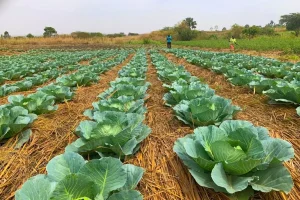
Nicolas Munu, Senior Agricultural Engineer in Terego District, revealed that the government is running the Cofounded Uganda Intergovernmental Fiscal Transfers (U-GIFT) Project, a micro-scale irrigation project funded by the World Bank in partnership with the Global Green Growth Institute (GGGI) in the district.
He said the project aims to promote modern irrigation technology using both petrol and solar power, but with the government’s much interest in solar-powered systems calling for farmers to interest themselves in the project.
“The government, through the Ministry of Agriculture, with the help of the World Bank, is running a cofounded program called U-GIFT Microscale Irrigation. This program stated in 2020, and in Terego district, it started in 2022, and is aimed at encouraging farmers to adopt modern irrigation technology, where a farmer is supposed to benefit by receiving irrigation kits, utilizing irrigation, and also receiving education on how to utilize the system,’’ said Munu.
This initiative aligns with the goal of the Ministry of Agriculture’s National Agricultural Policy and the Agriculture Sector Strategic Plan (ASSP), aiming to attract, retain, and support youth in agriculture.
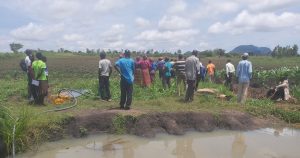
Currently, the U-GIFT project has reached 135 districts, with Terego district achieving a 95% installation completion rate. This initiative reflects a successful collaboration among government, private sectors, and international organizations, and stakeholders are encouraged to continue investing in solar-powered irrigation to unlock Northern Uganda’s agricultural potential.
Do you have an advertisement or article you want to publish? Mail us at theugreports@gmail.com or WhatsApp +256394700683.


